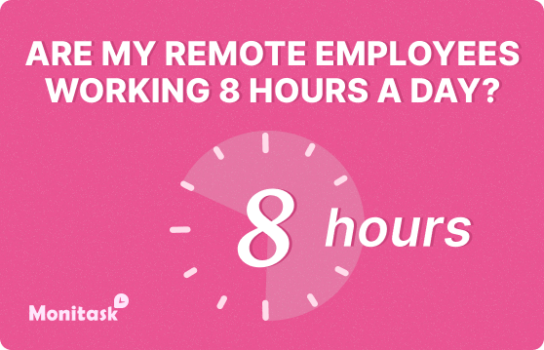Minimum Qualifications
Understanding Minimum Qualifications in HR
In the realm of human resources, minimum qualifications play a pivotal role in shaping the workforce and ensuring that organizations have the right talent to drive success. These qualifications serve as a baseline for potential candidates, outlining the essential requirements that an individual must possess to be considered for a specific job role. As we delve deeper into this topic, we'll explore the various facets of minimum qualifications and their significance in the HR landscape.
Defining Minimum Qualifications
Minimum qualifications, often abbreviated as MQs, are the foundational criteria that an applicant must meet to be eligible for a particular position. These qualifications typically encompass a combination of education, experience, skills, and sometimes certifications or licenses. The purpose of establishing minimum qualifications is to ensure that candidates have the basic competencies necessary to perform the job effectively.
It's important to note that minimum qualifications are not the same as preferred qualifications. While minimum qualifications are mandatory, preferred qualifications are additional attributes that may give a candidate an edge in the selection process but are not essential for consideration.
Components of Minimum Qualifications
Let's break down the key components that often make up minimum qualifications:
1. Educational Requirements
Educational qualifications typically specify the minimum level of formal education a candidate must have completed. This could range from a high school diploma to advanced degrees, depending on the complexity and responsibilities of the role. For instance, an entry-level customer service position might require a high school diploma, while a senior engineering role might demand a master's degree in a relevant field.
2. Work Experience
Many positions require a certain amount of relevant work experience. This ensures that candidates have practical knowledge and have demonstrated their ability to apply their skills in a real-world setting. The required experience can vary greatly, from entry-level positions with no experience necessary to senior roles that might require 10+ years in a specific industry or function.
3. Skills and Competencies
Specific skills and competencies are often listed as part of the minimum qualifications. These can include technical skills (e.g., proficiency in certain software or programming languages), soft skills (e.g., communication, leadership), or industry-specific knowledge. The level of proficiency required may also be specified, such as "basic understanding" or "expert-level mastery."
4. Certifications and Licenses
Some positions, particularly in regulated industries or specialized fields, may require specific certifications or licenses as part of the minimum qualifications. For example, a commercial truck driver would need a Commercial Driver's License (CDL), while a project manager might need a Project Management Professional (PMP) certification.
The Importance of Well-Defined Minimum Qualifications
Establishing clear and appropriate minimum qualifications is crucial for several reasons:
1. Ensuring Job Fit
Well-defined minimum qualifications help ensure that candidates who apply for a position have the basic capabilities to perform the job successfully. This increases the likelihood of finding candidates who can contribute effectively to the organization from day one.
2. Legal Compliance
Minimum qualifications must be job-related and consistent with business necessity to comply with equal employment opportunity laws. Properly established MQs help organizations avoid discriminatory hiring practices and potential legal issues.
3. Efficient Recruitment Process
By clearly stating the minimum qualifications, organizations can streamline their recruitment process. This helps filter out unqualified candidates early on, saving time and resources in the screening and interview stages.
4. Setting Expectations
Minimum qualifications set clear expectations for both the employer and potential candidates. They provide transparency about what's required for the role, helping candidates self-assess their suitability before applying.
Challenges in Establishing Minimum Qualifications
While minimum qualifications are essential, there are several challenges HR professionals face when establishing them:
1. Striking the Right Balance
One of the primary challenges is finding the right balance in setting minimum qualifications. If the bar is set too high, it may unnecessarily limit the candidate pool and exclude potentially valuable talent. On the other hand, if the qualifications are too low, the organization might be inundated with unqualified applicants.
2. Avoiding Bias
It's crucial to ensure that minimum qualifications do not inadvertently discriminate against protected groups. For example, requiring a certain number of years of experience might disproportionately impact younger candidates, while specific educational requirements might exclude individuals from disadvantaged backgrounds who may have equivalent skills gained through alternative paths.
3. Keeping Up with Industry Changes
In rapidly evolving industries, minimum qualifications need to be regularly reviewed and updated to reflect current industry standards and technological advancements. Failing to do so may result in outdated criteria that don't align with the actual needs of the role.
4. Balancing Hard and Soft Skills
While it's relatively straightforward to define minimum qualifications for hard skills or technical knowledge, it can be more challenging to quantify soft skills like leadership, adaptability, or creativity. However, these soft skills are often crucial for success in many roles.
Best Practices for Developing Minimum Qualifications
To address these challenges and create effective minimum qualifications, HR professionals can follow these best practices:
1. Conduct Thorough Job Analysis
Before establishing minimum qualifications, conduct a comprehensive job analysis to understand the essential functions and requirements of the role. This will help ensure that the qualifications are directly related to job performance.
2. Collaborate with Stakeholders
Work closely with hiring managers, department heads, and current employees in similar roles to gain insights into the necessary qualifications. Their input can provide valuable perspective on what's truly essential for success in the position.
3. Use Inclusive Language
When writing minimum qualifications, use inclusive language that doesn't unintentionally exclude diverse candidates. For example, instead of specifying a exact number of years of experience, consider using ranges or focusing on the level of proficiency required.
4. Consider Alternative Qualifications
Where possible, allow for equivalent combinations of education and experience. This can help attract a more diverse pool of candidates who may have developed relevant skills through non-traditional paths.
5. Regularly Review and Update
Periodically review and update minimum qualifications to ensure they remain relevant and aligned with current industry standards and organizational needs. This is particularly important in fast-changing industries or for roles heavily impacted by technological advancements.
The Impact of Minimum Qualifications on Diversity and Inclusion
Minimum qualifications can have a significant impact on an organization's diversity and inclusion efforts. While they are necessary to ensure candidates have the basic capabilities to perform a job, overly rigid or unnecessarily high minimum qualifications can inadvertently exclude diverse candidates.
For example, requiring a four-year degree for a position that doesn't necessarily need one might exclude talented individuals who couldn't afford higher education. Similarly, specifying a certain number of years of experience might disadvantage younger candidates or those who have taken career breaks.
To promote diversity and inclusion through minimum qualifications:
1. Focus on Skills, Not Just Credentials
Where possible, emphasize the skills and competencies required rather than specific credentials. This allows candidates to demonstrate their capabilities regardless of how they acquired them.
2. Consider "Equivalent Experience"
Include language that allows for equivalent experience or alternative qualifications. This can help attract candidates who have developed relevant skills through non-traditional paths.
3. Regularly Audit Qualifications
Periodically review minimum qualifications to ensure they aren't unintentionally excluding diverse candidates. Look for any requirements that might disproportionately impact certain groups and consider whether they're truly necessary for job performance.
The Role of Technology in Managing Minimum Qualifications
Advancements in HR technology have significantly impacted how organizations manage and apply minimum qualifications in their recruitment processes. Here are some ways technology is shaping this aspect of HR:
1. Applicant Tracking Systems (ATS)
ATS platforms can automatically screen resumes and applications based on predefined minimum qualifications. This can significantly streamline the initial screening process, especially for high-volume recruiting.
2. AI-Powered Matching
Some advanced systems use artificial intelligence to match candidate profiles with job requirements, including minimum qualifications. These systems can often identify candidates who might not be an exact match but have transferable skills or equivalent experience.
3. Skills Assessments
Online skills assessment tools can help verify whether candidates meet specific minimum qualifications, particularly for technical skills or knowledge-based requirements.
4. Data Analytics
HR analytics tools can provide insights into the effectiveness of minimum qualifications in predicting job success. This data can inform decisions about adjusting or updating qualifications over time.
Legal Considerations Surrounding Minimum Qualifications
When establishing and applying minimum qualifications, organizations must be mindful of various legal considerations to ensure compliance with employment laws and avoid discriminatory practices. Here are some key legal aspects to consider:
1. Job-Relatedness and Business Necessity
Under Title VII of the Civil Rights Act and other anti-discrimination laws, minimum qualifications must be job-related and consistent with business necessity. This means that any qualification that might have a disparate impact on protected groups must be demonstrably necessary for job performance.
2. Reasonable Accommodations
The Americans with Disabilities Act (ADA) requires employers to provide reasonable accommodations to qualified individuals with disabilities. This may include modifying or waiving certain minimum qualifications if doing so doesn't create undue hardship for the employer.
3. Uniform Application
Minimum qualifications must be applied uniformly to all applicants. Selectively waiving or enforcing qualifications for different candidates could lead to claims of discrimination.
4. Recordkeeping
Organizations should maintain thorough records of how minimum qualifications were developed and applied in the hiring process. This documentation can be crucial in defending against potential discrimination claims.
The Future of Minimum Qualifications in HR
As the nature of work continues to evolve, so too will the approach to minimum qualifications. Here are some trends and considerations for the future:
1. Emphasis on Adaptability and Learning Agility
With the rapid pace of change in many industries, there's likely to be an increased focus on adaptability and learning agility as key qualifications. The ability to quickly acquire new skills may become more valuable than specific, static knowledge.
2. Micro-Credentials and Alternative Education
As alternative forms of education and skill development become more prevalent, minimum qualifications may need to evolve to recognize micro-credentials, online certifications, and other non-traditional learning paths.
3. Competency-Based Qualifications
There may be a shift towards more competency-based qualifications rather than traditional experience or education requirements. This approach focuses on what a candidate can do rather than their background or credentials.
4. Increased Use of AI and Predictive Analytics
Advanced AI and predictive analytics may play a larger role in identifying the most predictive minimum qualifications for job success, potentially leading to more data-driven and less intuitive qualification criteria.
Conclusion
Minimum qualifications are a fundamental aspect of the hiring process, serving as a crucial tool for organizations to identify candidates with the basic capabilities needed for job success. While they provide a necessary starting point for candidate evaluation, it's essential to approach them thoughtfully and flexibly.
By carefully crafting minimum qualifications that are job-related, inclusive, and regularly reviewed, organizations can strike a balance between ensuring candidate quality and promoting diversity. As the workplace continues to evolve, so too will the approach to minimum qualifications, likely becoming more dynamic and skills-focused.
Ultimately, well-designed minimum qualifications can contribute significantly to building a talented, diverse, and effective workforce. They serve as a foundaton for smart hiring decisions, helping organizations find the right talent to drive success in an increasingly competitive and rapidly changing business landscape.


